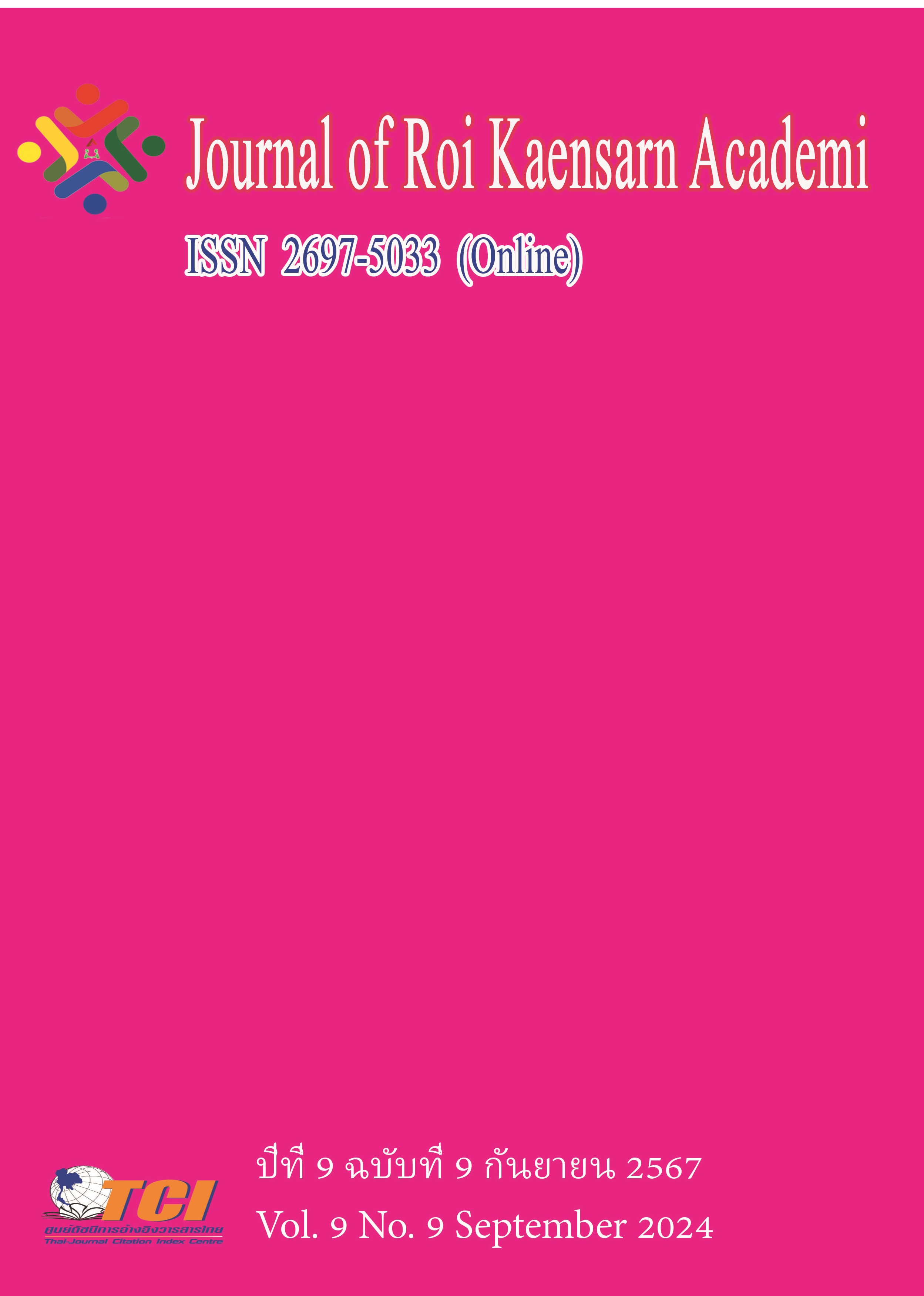The Empirical Study on the Intercultural Survival Issues of Chinese International Students Studying at Prince of Songkla University in Phuket Campus
Main Article Content
บทคัดย่อ
The objectives of this research were:1) To study the connection between Chinese students and local Overseas Chinese society in Phuket. 2)To Study the practical significance of studying international students' cross-cultural survival and development. 3)To Study the Chinese students independently adapt to the study environment in Thailand. The researcher will select 127 students as the subjects of this survey.The researcher will adopt the statistical method of sampling the survey. After collecting data, this article will use the "percentage" method for statistical data analysis. In the year 2023, Prince of Songkla University, renowned for its academic excellence and international diversity, boasted a total enrollment of 187 students hailing from the People's Republic of China, thereby reflecting the institution's commitment to fostering global educational exchanges. Within the scholarly discourse of this article, the imperative of methodological rigor is duly acknowledged, prompting the utilization of the established Taro Yamane formula, as delineated by Yamane (1973), to ascertain an appropriate sample size representative of the university's overarching student body composition and demographics.
The research results were found as follows:1)Social and cultural adaptation of Chinese students who have studied in Thailand positively affects academic adaptation. 2).Psychological adaptation of Chinese students who have studied in Thailand positively affects academic adaptation. 3)The psychological adaptation of Chinese students who have studied in Thailand positively affects social and cultural adaptation.
Suggestion: Improving language skills is the key to enhancing the cross-cultural adaptation of Chinese students in Thailand. Proficiency greatly contributes to academic pursuits and social support, promoting communication and friendships. Overcoming language barriers is critical for academic and social assistance. At the same time, maintain good contact with the local society or Chinese society to effectively relieve the pressure of foreign countries.
According to research, Chinese international students who first come to PSU will have certain limitations in language communication. Regarding academics, they usually have a strong professional ethics and focus on academic excellence. In addition, it can be highly integrated with the local Chinese and overseas Chinese society, and there are no problems related to exclusion.
Article Details
เอกสารอ้างอิง
Berry, J. W. (2002). Cross-cultural psychology: Research and applications. Cambridge University Press.
Brislin, R. W., & Yoshida, T. (Eds.). (1993). Improving intercultural interactions: Modules for cross-cultural training programs. Sage Publications.
Brooks, R., & Waters, J. (2011). Student mobilities, migration and the internationalization of higher education. Springer. 1-21.
Forbush, E., & Foucault-Welles, B. (2016). Social media use and adaptation among Chinese students beginning to study in the United States. International Journal of Intercultural Relations, 50, 1-12.
Hutchings, K., Jackson, P., & McEllister, R. (2002). Exploiting the links between theory and practice: Developing students' cross-cultural understanding through an international study tour to China. Higher Education Research & Development, 21 (1), 55-71.
Lei, L., & Guo, S. (2020). Conceptualizing virtual transnational diaspora: Returning to the ‘return’ of Chinese transnational academics. Asian and Pacific Migration Journal, 29 (2), 227-253.
Ma, X., Wang, B., & He, X. (2023). Migration aspirations and polymorphic identifications of the homeland:(im) mobility trajectories amongst Chinese international students amidst COVID-19. Identities, 30 (3), 352-372.
Nawaz, A., Wang, A., G., & Khan, M. F. (2022). Effectiveness of Ethical Leadership on Job Satisfaction: Mediating Role of Organizational Citizenship Behavior. Pakistan Journal of Humanities and Social Sciences, 10 (4), 1324-1341.
Oberg, K. (1960). Cultural shock: Adjustment to new cultural environments. Practical anthropology, (4), 177-182.
Waters, J. L. (2005). Transnational family strategies and education in the contemporary Chinese diaspora. Global networks, 5 (4), 359-377.
Singh, A. S. (2017). Common procedures for development, validity and reliability of a questionnaire. International Journal of Economics, Commerce and Management, 5 (5), 790-801.
Zhang, H & Hu, H. (2021). Research on the use of new media and cultural adaptation of contemporary Chinese students studying in Europe. Research on the history of overseas Chinese. 2019 (1), 50-57

